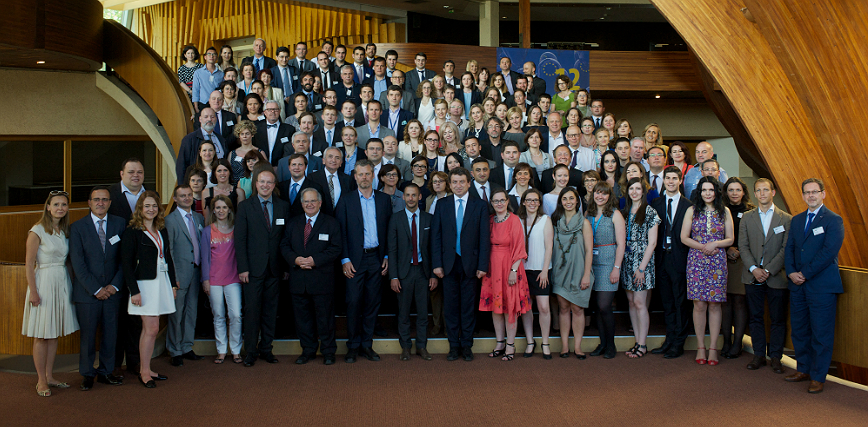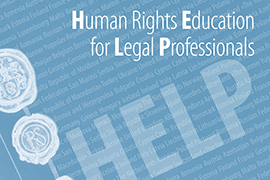HELP-ს ქსელი
Main Tasks
HELP-ის ქსელი, ერთადერთი პანევროპული ადამიანის უფლებათა სწავლების ქსელია, რომელიც დაკომპლექტებულია მოსამართლეებისა და პროკურორების ეროვნული სასწავლო დაწესებულებების წარმომადგენლებისა და ადვოკატთა ასოციაციების წარმომადგენლებისგან 47 წევრ ევროპულ სახელმწიფოში ევროპული საბჭოს მასშტაბით.:
HELP-ის ქსელი უფლებამოსილია განახორციელოს 2012წლის ბრაიტონის დეკლარაციის 9.vi პუნქტით გათვალისწინებული უფლებამოსილებები, კერძოდ:
-
საბაზისო და განგრძობადი განათლების განვითარების ხელშეწყობა და პოპულარიზაცია იურიდიული პროფესიის წარმომადგენლებისთვის ადამიანის უფლებათა ევროპული კონვენციის სტანდარტებსა და ევროპული სასამართლოს პრეცედენტულ სამართალში.
- გაუზიაროს ევროპული საუკეთესო პრაქტიკა სასწავლო კურიკულუმის შესახებ, სასწავლო მასალებზე და იურიდიული სწავლების მეთოდოლოგიაზე, ისევე როგორც მოახდინოს მომავალი სასწავლო პრიორიტეტების;
- provide advice on how to support member states in enhancing the capacity of judges, prosecutors and lawyers to apply the ECHR at national level, in their daily work, throughout adequate training on the ECHR and related themes;
- provide advice on how to enhance the capacity of lawyers to comply with the admissibility criteria in applications submitted to the ECtHR, increasing the quality of well-founded applications before the ECtHR;
- provide a widespread knowledge and use of the HELP training resources among legal professionals;
- promote an improved coordination among international and national institutions on human rights training initiatives for legal professionals.

Working Methods
The HELP Network will co-ordinate its activities with the Secretariat of the HELP Programme. Meetings shall normally be convened at the premises of the Council of Europe in Strasbourg once per year. Meetings of the Network will be organised as follows:
Plenary Meeting: 94 members (150 including partners and observers), 1 two-day meeting per year. This HELP Network Annual Conference is the opportunity for:
- an exchange of best practices in the 46 Member States in the field of human rights education for legal professionals; as well as on training methodology (including development of new tools to assess the impact and effects of training);
- an opportunity for a large-scale training needs assessment for legal professionals in the 46 Member States;
- setting up the Roadmap and priorities for the following year (identification of priority topics, multinational and multidisciplinary training initiatives, etc).
Partners:
- The European Judicial Training Network (EJTN)
- International associations of judges
- The Council of Bars and Law Societies of Europe (CCBE)
- European Bars Federation (FBE)
- The European Court of Human Rights
- National associations of judges and prosecutors
- Professional associations of lawyers,
- Legal aid networks and legal clinics specialised in human rights
- Mémoire Albert Cohen Foundation




